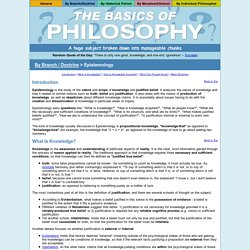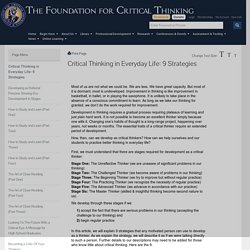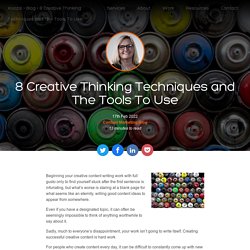

Social engineering. Cognitive networks. Thinking / Debate. Useful information. Information & Media Literacy. Information Literacy. BP10. Design Thinking. Bunge. Creative Tools and Resources. Philosophy. Metaphysics. History and scope Wolff contrasted ontology, or general metaphysics, which applied to all things, with special metaphysical theories such as those of the soul, of bodies, or of God.
Wolff claimed that ontology was an a priori discipline that could reveal the essences of things, a view strongly criticized later in the 18th century by David Hume and Immanuel Kant. In the early 20th century the term was adopted by the German founder of phenomenology, Edmund Husserl, who called Wolff’s general metaphysics “formal ontology” and contrasted it with special “regional ontologies,” such as the ontologies of nature, mathematics, mind, culture, and religion. After renewed criticism and eclipse under the antimetaphysical movement known as logical positivism, ontology was revived in the mid-20th century by the American philosopher W.V.O. Quine. Once they have been brought into the open, ontological disputes tend to concentrate on questions of several recurrent kinds.
Methods Peter+M. History and scope. Philosophy and Logic. Epistemology - By Branch / Doctrine. Introduction | What Is Knowledge?

| How Is Knowledge Acquired? | What Can People Know? | Major Doctrines Epistemology is the study of the nature and scope of knowledge and justified belief. It analyzes the nature of knowledge and how it relates to similar notions such as truth, belief and justification. Epistemology asks questions like: "What is knowledge? " The kind of knowledge usually discussed in Epistemology is propositional knowledge, "knowledge-that" as opposed to "knowledge-how" (for example, the knowledge that "2 + 2 = 4", as opposed to the knowledge of how to go about adding two numbers). Knowledge is the awareness and understanding of particular aspects of reality. Truth: since false propositions cannot be known - for something to count as knowledge, it must actually be true. The most contentious part of all this is the definition of justification, and there are several schools of thought on the subject:
Critical Thinking in Everyday Life: 9 Strategies. Most of us are not what we could be.

We are less. We have great capacity. But most of it is dormant; most is undeveloped. Improvement in thinking is like improvement in basketball, in ballet, or in playing the saxophone. It is unlikely to take place in the absence of a conscious commitment to learn. Development in thinking requires a gradual process requiring plateaus of learning and just plain hard work. How, then, can we develop as critical thinkers? First, we must understand that there are stages required for development as a critical thinker: We develop through these stages if we: In this article, we will explain 9 strategies that any motivated person can use to develop as a thinker. Critical Thinking Skills. 8 Awesome Creative Thinking Techniques. Writer’s block can be a royal pain.

Beginning your work with full gusto only to find yourself stuck after the first sentence is infuriating, but what’s worse is staring at a blank page for what seems like an eternity, willing ideas to appear from somewhere. Even if you have a designated topic, it can often be seemingly impossible to think of anything worthwhile to say about it. Sadly, much to everyone’s disappointment, your work isn’t going to write itself. For people who create content every day, it can be difficult constantly coming up with new ideas. Luckily, if you’ve hit that creative wall, there are several techniques you can implement to get those creative juices flowing again. Below are eight of my favourite creative problem solving techniques. 1. Let’s begin with a timeless classic. The key to mind mapping is to take note of every idea that comes up.
75 Tools For Creative Thinking. Creativity Tools for Developing Creative Solutions from MindTools.com. How to Think Critically. Fake News.